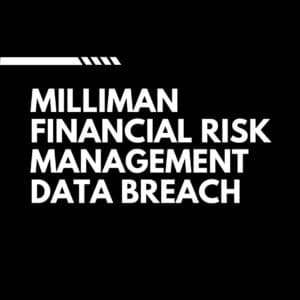
On July 28, 2025, TransUnion, LLC., reported a Data Breach to the Washington Attorney General’s Office. The Data Breach occurred when attackers exploited weaknesses in third-party integrations used in its consumer support operations. TransUnion confirmed that more than 4.4 million U.S. consumers were affected.
Recently, TransUnion has begun sending Data Breach notification letters to those affected and is offering all affected individuals 24 months of free credit monitoring and identity theft protection services. If you received a Data Breach notification letter from TransUnion, it confirms that your information was potentially impacted.
What Information Is Involved In the TransUnion, LLC. Data Breach?
The following types of Personally Identifiable Information (PII) may have been compromised in the Data Breach:
- Full names,
- Social Security numbers,
- Full dates of birth.
PII refers to any data that can be used to identify a specific individual. This includes obvious details like full names, Social Security numbers, and addresses, as well as less direct identifiers such as email addresses, phone numbers, biometric data, and even login credentials. When PII is compromised, it can lead to serious consequences, including identity theft, financial fraud, and unauthorized access to sensitive accounts. For organizations, mishandling PII can result in legal penalties, reputational damage, and loss of customer trust. Protecting PII is essential for both individuals and businesses to maintain privacy and security.
How to Protect Your Information after a Data Breach
If you received a data breach notification letter, it is crucial to understand what evidence you need for a successful data breach lawsuit. Below are some steps you can take to safeguard your identity.
Check your credit report: You can get one for free from annualcreditreport.com. Notify Equifax, Experian, and TransUnion to ask them to place a fraud alert on your accounts.
Consider placing a credit freeze: It’s free and makes it harder for someone to open accounts using your information. You can do this at the credit bureaus linked above.
Subscribe to credit and identity monitoring services: These services will send you alerts for any suspicious activity.
Regularly change your passwords and security questions: Never use the same password for your banking and credit accounts. You can also use password managers like Bit Warden or LastPass.
Two-factor authentication (2FA): Set 2FA on your digital accounts whenever possible.
Set up security alerts: You can set up security alerts with your bank and credit card companies. These alerts will text or email you whenever there is suspicious activity.
File your taxes as early as you can: Thieves can use your Social Security number to get a tax refund or even a job.
Ignore threatening phone calls: Phone scammers will threaten you and attempt to get you to send them money. Don’t believe them, even if they have part or all of your Social Security number or say they’re from the IRS.
If you received a Notice of Data Breach letter from TransUnion, LLC., contact Emery | Reddy for a Free Case Review.




